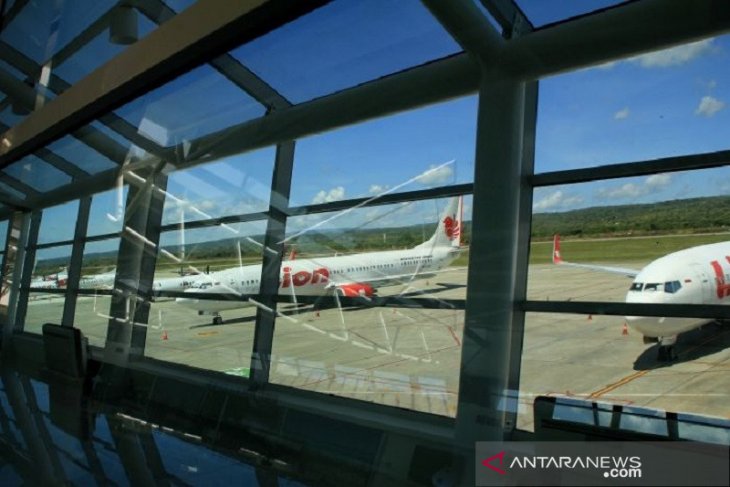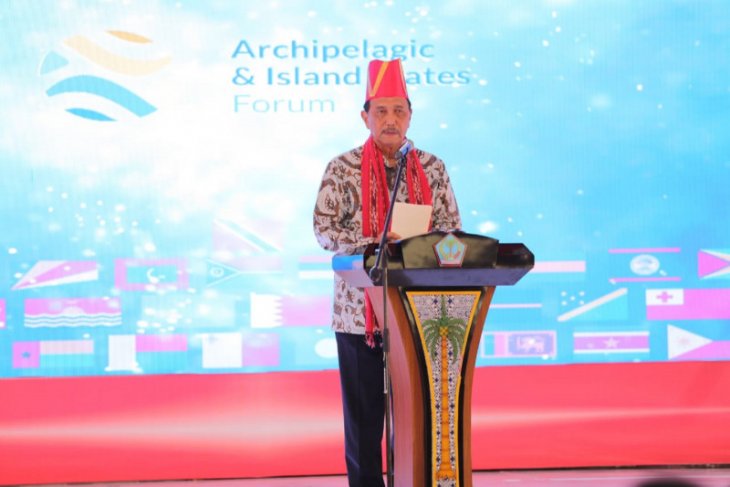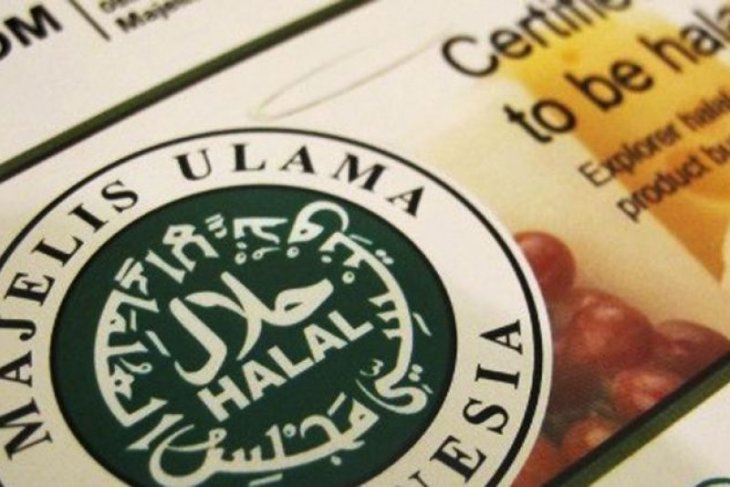Live Streaming
Program Highlight
Company Profile

Ani Hasanah
June
 Illustration - Aircraft parked at the El Tari Airport in Kupang, East Nusa Tenggara. ANTARA/Kornelis Kaha/sh
Illustration - Aircraft parked at the El Tari Airport in Kupang, East Nusa Tenggara. ANTARA/Kornelis Kaha/sh
Air passenger capacity will be stepped up gradually to 100 percent by implementing stringent health protocols at airports and in aircraft cabins, according to the Transportation Ministry.
Director-General of Air Transportation Novie Riyanto noted in a statement here on Thursday that the policy to increase air passenger capacity is in accordance with the regulation of international aviation authority, such as the ICAO, EASA, CASA, and CAA.
"We ensure that all requirements align with the standards of the International Civil Aviation Organization (ICAO) that several other countries also apply," Riyanto remarked.
The Director-General of Air Transportation’s Circular Letter No. 13/2020 clearly administers the application of standard operational procedures, both at airports and aircraft cabins, he stated.
The ministry has issued Ministerial Regulation No. PM 41/2020 and circular letter of the Director-General of Air Transportation No. 13/2020 on air transportation operation during the transition period toward the new normal amid the COVID-19 pandemic.
Riyanto made assurance of the air filtration and circulation system, with the high-efficiency particulate air (HEPA) technology, in aircraft cabins would curtail the spread of COVID-19.
"The air filtration and circulation system in cabins was designed to minimize bacterial and viral transmission. However, we will continue to learn and update the requirements for the gradual increase in passenger capacity in accordance with the international regulation," he stated.
Over 85 percent of passenger aircraft in Indonesia employ this technology.
However, Riyanto noted that the government was currently focusing on safety measures against the COVID-19 pandemic, standard procedures for passenger handling, and training of flight crew on handling the COVID-19 pandemic.
"To ensure safety in the aircraft, we have prepared a regulation on (preparing) an isolation room in the cabin. To handle passengers symptomatic with COVID-19, we have set aside three rows of empty seats at the back with a special mechanism," he explained. (ANTARA)
June

Illustratio. Coordinating Minister for Maritime Affairs and Investment Luhut Binsar Pandjaitan at the Archipelagic and Island State (AIS).
The Coordinating Maritime and Investment Affairs Ministry urged archipelagic and island state (AIS) members to join forces to bolster cooperation and synergize economic instruments to counter the global economic decline owing to the COVID-19 pandemic.
"COVID-19 clearly brings to light the fact that no country can single-handedly face a crisis situation. The broad and long-term threat posed by the spread of this virus necessitates the international community to jointly handle the current pandemic," the coordinating minister's deputy for maritime sovereignty, Purbaya Yudhi Sadewa, stated at the launch of the AIS program and talk show.
In a written statement in Jakarta on Thursday, Sadewa highlighted that the AIS Forum was designed as an open medium that can function as a development platform.
Sadewa remarked that AIS had become a collaborative forum that complements and boosts existing forums through innovative collaboration.
According to Sadewa, the AIS forum was a tool for countries and the international global community to channel their available resources, knowledge, and expertise, as a means to overcome developmental issues through the formation of intelligent and innovative solutions.
"The Indonesian government has worked closely with UNDP and the AIS Forum Secretariat to support collaboration between island nations and islands around the world. Based on the 2018 Manado Joint Declaration agreement and the Final Results of the AIS Forum in 2019, the AIS Secretariat will support the AIS Forum in terms of implementing smart solutions and innovations in four areas of cooperation comprising mitigation and adaptation to climate change, blue economy, marine plastic waste, and good maritime governance," he expounded.
On the occasion, Purbaya expressed hope that Indonesia would also celebrate World Sea Day on the same day as World Earth Day that falls on June 8, 2020.
"I believe, we are all connected. As residents of island or island nations, we have unique perspectives and experiences that differ from continental-based countries. As Hellen Keller once said, 'Alone we can do little, together we can do so much.' I hope we can stay connected, work together, and support each other," he affirmed. (ANTARA)
June

Halal Label of the Indonesian Ulema Council Food and Drug Analysis Agency (LPPOM MUI) / ist
The COVID-19 outbreak did not stop the process of halal certification for the community that could be served suitably and responsibly, according to the Indonesian Ulema Council (MUI).
"In the midst of the COVID-19 pandemic, the Indonesian Ulema Council Food and Drug Analysis Agency (LPPOM MUI) can still serve business practitioners well and be accounted for. We do not want halal certification to stop business in Indonesia," Director of Halal Audit of the Indonesian Ulema Council Food and Drug Analysis Agency (LPPOM MUI) Muti Arintawati informed reporters in Jakarta on Thursday.
Arintawati pointed to proper risk mitigation being applied at the start of the year before the first COVID-19 case was announced in Indonesia. The process of countermeasures began with the number of foreign audits related to halal products.
Even so, Arintawati noted that LPPOM MUI had formed a separate task force in connection with COVID-19, the Coronavirus Crisis Center for public safety, particularly for auditors, employees, and building visitors.
Along with the work-from-home policy, Arintawati remarked that LPPOM MUI had curtailed activities at the office while the halal certification process was yet being conducted, with the Cerol-SS23000 system still active that allows the public to directly monitor developments pertaining to the halal certification process.
Arintawati pointed out that the LPPOM MUI had also implemented Modified Onsite Audit (MOsA), an audit system on March 19, 2020, that aligns with the current needs.
The audit meets the standards of the National Accreditation Committee (KAN) used for the Halal Assurance System (SJH).
Nevertheless, Arintawati pointed out that not all categories, such as slaughter and gelatin products, can be audited by MOsA.
"In general, the audit can be conducted by MOsA. We will test it in stages. Initially, MOsA can only be applied to products for development and extension. After obtaining the right formula, MOsA is tested for new companies," he explained.(ANTARA)
BNN Commemorates International Anti Narcotics Day 2020 with Virtual Charity Concert
Jakarta (VOI News) - The National Anti-Narcotics Agency (BNN) will virtually commemorate the 2020 International Anti Narcotics Day which falls on Friday, June 26, 2020 and broadcast live by electronic media and live streaming on social medias. In addition, the agency will also hold a virtual charity concert dubbed Konser Slank #HIDUP100% on June 27, 2020. The Head of the National Narcotics Agency (BNN) Heru Winarko at a virtual press conference in Jakarta, Friday (12/06)on the eve of the virtual charity concert, the agency will also launch its new tagline, which is #HIDUP 100%.
"We will also hold a charity concert, which will be held on Saturday night, June 27, next week, where we will collaborate with Kompas, Pos Kota, Slank. And at this event too, in this connection, we will launch our tagline, which was Hidup Sehat Tanpa Narkoba or Healthy Living Without Drugs. We will try, we change, according to the current millennial situation,Hidup 100 persen (Life 100 percent). Now with this 100 percent life, we can develop it for the existing life activities," said Heru WInarko.
Furthermore Head of the National Narcotics Agency (BNN) Heru Winarko said the result of the fundraising from the charity concert will be donated for the handling of the impact of COVID-19. (VOI / AHM)


